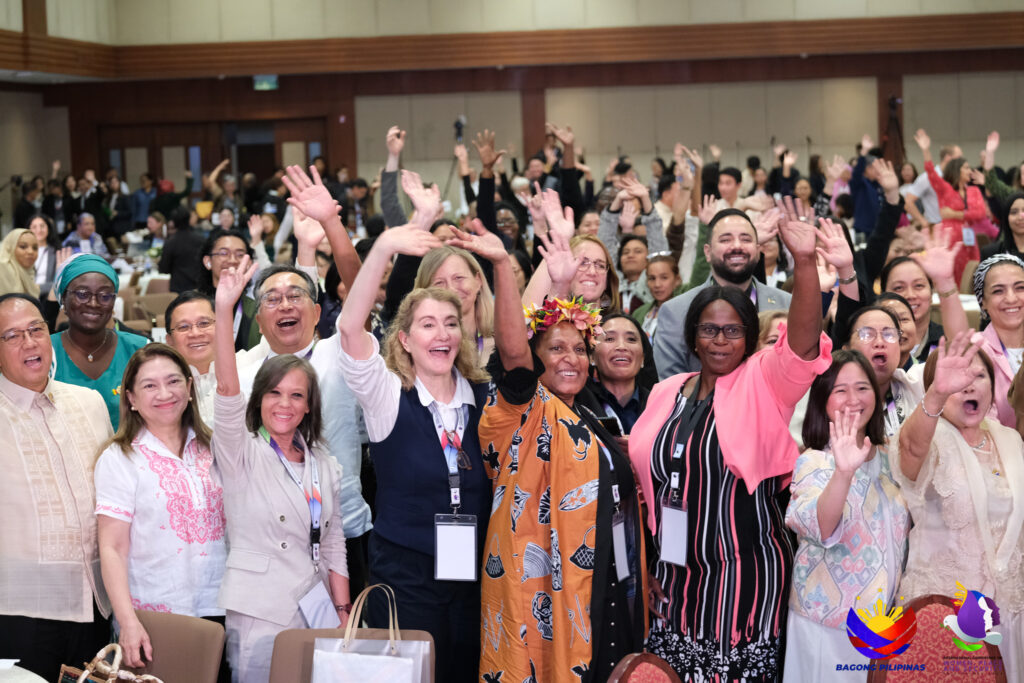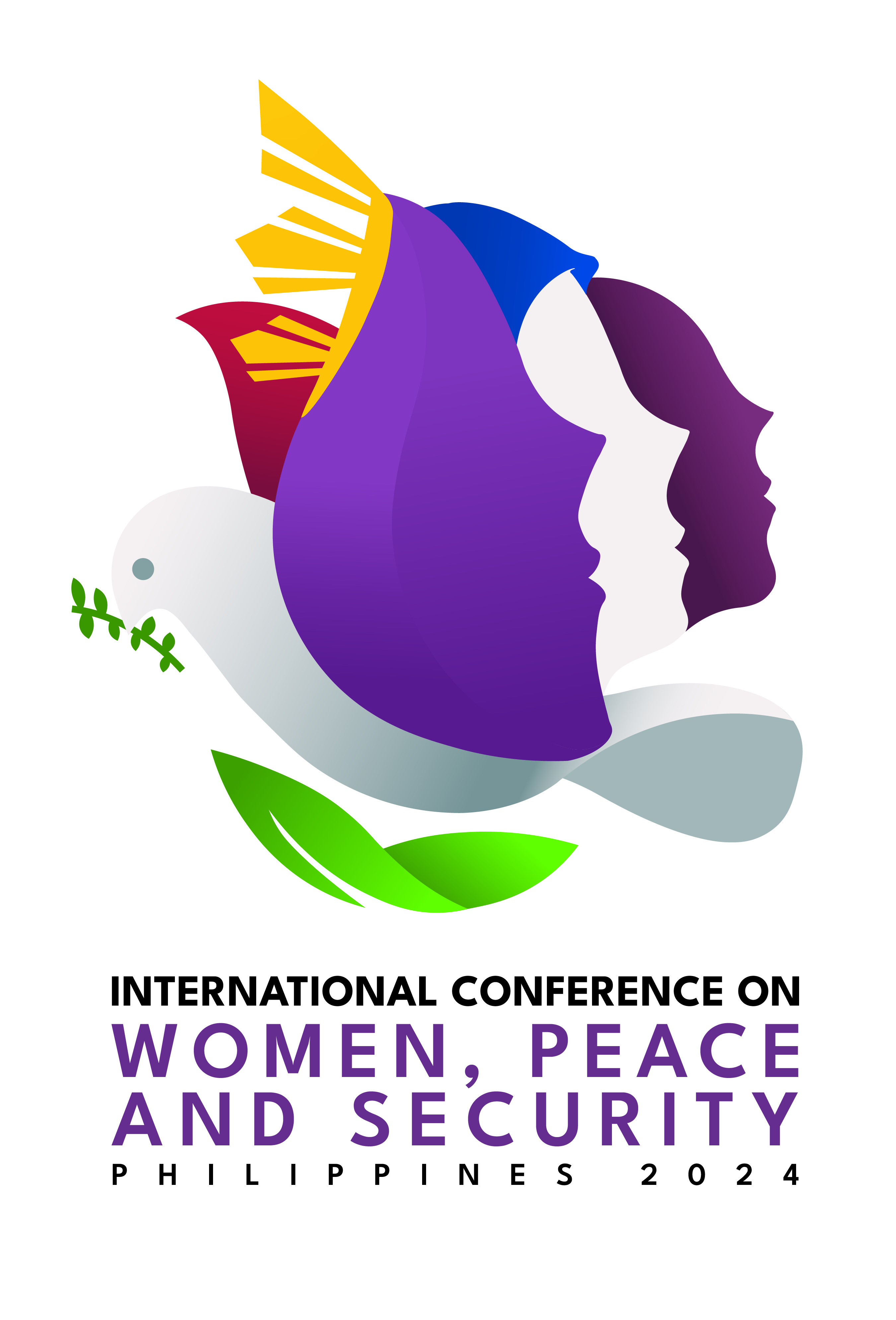Int’l conference calls for strengthened women’s participation in climate change

PASAY CITY– A distinguished panel of global women leaders convened here on Wednesday, October 30, to discuss the crucial role of women in addressing climate change issues, while fostering peace and strengthening security across the globe.
The event was among the high-level segments of the International Conference on Women, Peace, and Security (ICWPS), which brought together over more than 700 delegates from 84 countries worldwide.
In a segment titled “Rising Tides, Rising Leaders: Women Spearheading Climate, Peace, and Security,” the panel discussed and explored how climate-related risks intersect with security challenges, emphasizing the need for women’s leadership in crafting and implementing resilient and sustainable solutions.
Women as the most vulnerable during climate crisis
In her opening remarks, Philippine Commission on Women (PCW) Chairperson Ermelita Valdeavilla noted that climate change is not just an environmental crisis but a main driver of insecurity, which exacerbates the vulnerabilities of those already in the margins, particularly women and communities displaced by conflict and environmental disasters.
“Women and girls face numerous challenges as a result of the climate crisis, including the loss of economic base, increased vulnerability to food and water scarcity, heightened risk of gender-based violence during disasters, and insecurity and greater barriers to accessing education and health care,” Valdeavilla said.
The Women, Peace and Security (WPS) framework provides stakeholders an inclusive, holistic and integrated platform to address these intersecting issues in policy and programming spaces.
An analysis from the 2023 WPS Index suggests that countries committed to Women, Peace and Security principles are not only more peaceful but also better equipped to handle climate change challenges.
“Climate change has also specific security implications, especially in conflict-vulnerable areas. Climate-induced disasters and regions like the Bangsamoro increase competition for scarce resources, amplifying tensions and the potential for conflict,” Valdeavilla said.
“In these settings, women’s leadership becomes essential to both immediate disaster response and longer term peace building,” she emphasized.
According to the PCW chairperson, research has shown that when women are included in the decision-making process, climate policies tend to be more stringent and community-centered.
She shared the results of a 2019 study, which found out that parliaments with higher female representation passed stronger climate policies that “reflects women’s prioritization of long term community welfare.
“Yet, despite their contributions, women occupy only 27% of parliamentary seats and 15% of environment ministry roles globally. Limiting policies that address their unique vulnerabilities to climate impacts such as heightened risk of gender-based violence and economic instability after disasters,” she pointed out.
Grassroots women’s achievements in climate change mitigation efforts
During the panel discussions, Ruth Kissam, board chair and president of Advancing PNG Women Leaders Network based in Papua New Guinea, shared their experiences, challenges and takeaways in leading climate change mitigation, adaptation, and conflict resolution initiatives.
“The women of our Pacific, they are custodians of our stories. It’s from the women that our stories are kept. It’s from our women that our stories are passed on,” Kissam said.
However, she revealed that when women are being moved “from one place to another especially into shelters, when you put them into care centers, research has shown that the number of violence that is happening in care centers is very high.”
‘When there is a lack of support from the government. When there is a lack or in the vacuum of a national action plan on WPS. What happens? It’s the civil society that stands up to do the work,” Kissam stressed.
“Some of them are lucky when they get supported by development partners in which I would say Papua New Guinea is very privileged. We have a lot of development partners, whether it’s the UN, whether it’s the European Union, whether it’s the Australian government, which has been a traditional partner for a very long time,” she added.
Kissam is a dedicated human rights advocate and expert on violence related to sorcery accusations, with over 20 years of experience in peacebuilding, community organizing, and women’s empowerment.
As head of the Advancing PNG Women Leaders Network, she leads a dynamic coalition of eighty community-based organizations led by self-driven women, she is leading efforts to strengthen women’s role in the areas of leadership, economic opportunities, legal support access, climate action, peacebuilding, and enhanced community security across 15 provinces in Papua New Guinea.
“We’ve done, we’ve done a lot of work. The civil society has done a lot of work. We’ve engaged with the government. We’ve engaged with different partners,” Kissam said.
“So that we can be able to push the agenda on WPS. But again like I said when there is no policy framework in place to be able to help civil society, it also proves to be a challenge,” she added.
Global efforts for inclusion of women in climate change response
During the panel discussion, a powerful appeal for gender-responsive approaches to climate resilience and security was made, emphasizing the importance of integrating women’s perspectives into global strategies.
The participants highlighted the need to empower women by providing essential technical, funding, and informational resources, as well as building stronger networks to amplify their voices in climate and security discussions.
At the same conference, Slovenia’s Ambassador-at-Large for Climate Diplomacy Smiljana Knez, highlighted Slovenia’s commitment to advancing the agendas of climate peace and security, as well as women’s peace and security.
Knez announced Slovenia’s pledge to the COP28 Presidency Declaration on Climate Relief, Peace, and Recovery, underscoring the nation’s dedication to empowering women’s leadership in these crucial areas.
“Among our five key commitments, one focuses on Women, Peace, and Security. Slovenia proudly supports the Women’s Peace and Humanitarian Fund, reinforcing women’s participation and leadership in climate peace and security initiatives,” the Ambassador said.
Slovenia was one of the first countries to support this fund financially, with a focus on empowering local women-led organizations at the forefront of climate action.
Knez also highlighted key challenges that remain – the need for more comprehensive research into the intersection of Climate, Peace, and Security (CPS) with the Women, Peace, and Security (WPS) agendas, along with better integration of gender-responsive policies in national action plans.
“We must recognize that promoting human and environmental well-being is a critical pathway to peace,” the Ambassador noted.
Calling for clarity on the various roles women play in climate and peace efforts — as agents of change, as decision-makers, and as survivors — the Ambassador emphasized that full, equal, and meaningful participation of women is essential at every level of the climate security decision-making process.
Slovenia’s commitments to these intersecting agendas demonstrate a model for how gender-responsive action can drive both environmental sustainability and global peace initiatives forward.
Through these strategic partnerships, Knez highlighted the need to support women leaders by equipping them with the tools needed to tackle environmental challenges effectively.
This inclusive focus on women’s leadership, she noted, aims to forge a more robust foundation for sustainable climate action and peace-building efforts worldwide.
The ICWPS was organized by the Philippine government, led by the Department of Foreign Affairs (DFA), the OPAPRU, the Philippine Commission on Women (PCW) and the Department of Budget and Management (DBM), in partnership with UN Women, the Philippine Center for Islam and Democracy, and the ASEAN Institute for Peace and Reconciliation, support from the office of Senator Loren Legarda.

